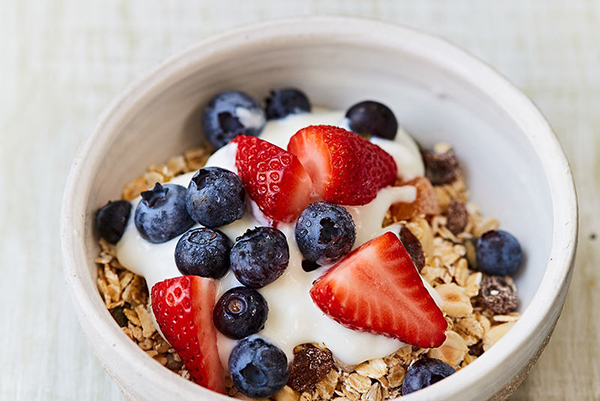Height has long been a topic of fascination and curiosity, especially for those in their formative years. Many factors contribute to a person’s height, including genetics, nutrition, and lifestyle choices. Among the various dietary options, breakfast cereals have gained popularity as a convenient and nutritious choice for starting the day. But the question on many minds remains: does eating cereal have the power to make you taller?
In this article, we embark on a journey to unravel the truth behind the claim that consuming cereal can lead to an increase in height. We delve into the nutritional components of cereals, explore their potential impact on growth and development, and examine the broader context of height determination. By critically analyzing available research and expert opinions, we aim to provide clarity on whether cereal alone can work wonders on height enhancement.
Join us as we navigate through the realm of nutrition, genetics, and growth patterns. Whether you’re a concerned parent seeking the best breakfast options for your growing child or an individual curious about the role of cereal in height development, this article will serve as a well-informed guide.
Beyond the myth and misconceptions, we aim to shed light on the true relationship between cereal consumption and height. We encourage readers to adopt a holistic perspective on nutrition and its role in overall health and growth. So, let’s separate fact from fiction and embark on this enlightening exploration into the world of cereal and its impact on height.
What is Cereal?
Cereal refers to a type of food made from processed grains. It is commonly consumed as a breakfast option and is often served with milk or yogurt. Cereal grains used to make breakfast cereals include wheat, corn, oats, rice, barley, and other grains.

Cereal products come in various forms, such as flakes, puffs, granola, or shapes like loops, Os, and squares. They are often processed and fortified with vitamins and minerals to enhance their nutritional value. Some cereals may also have added sugars, flavors, and other ingredients to improve taste and appeal.
Cereal is a popular choice for breakfast due to its convenience and ease of preparation. It can be quickly served with milk or eaten dry as a snack. Cereal is widely available in grocery stores and comes in a wide range of flavors and varieties to suit different preferences and dietary needs.
While cereal can be a part of a balanced breakfast, it is essential to choose options that are low in added sugars and high in whole grains and nutrients. Reading nutrition labels can help individuals make informed choices about the nutritional content of the cereal they consume.
The nutritional components of Cereal
The nutritional components of Cereal are as follows:
- Carbohydrates: Cereal is a rich source of carbohydrates, providing energy for daily activities and bodily functions.
- Fiber: Cereal contains dietary fiber, which aids in digestion and helps maintain a healthy digestive system.
- Protein: Cereal contains varying amounts of protein, essential for tissue repair and building muscle mass.
- Vitamins: Cereal often contains vitamins like B-complex vitamins (B1, B2, B3, B6), which play crucial roles in metabolism and overall health.
- Minerals: Cereal can be a good source of minerals such as iron, magnesium, and zinc, important for various physiological processes.
- Antioxidants: Some cereals may contain antioxidants that help protect the body against free radicals and oxidative stress.
- Fats: While cereals are generally low in fat, they may still provide some healthy fats like omega-3 and omega-6 fatty acids.
It’s essential to read the nutrition label or package information to understand the specific nutritional content of a particular cereal product as they can vary depending on the brand and type.
Does cereal help increase height?
Cereals are indeed a good choice if you intend to improve your height. They are rich in nutrients and contain many elements beneficial for bone health, such as Calcium, Magnesium, Phosphorus, Potassium, and more. Therefore, consuming cereals properly can contribute to promoting good bone growth and help you achieve your desired height.
However, it is essential to know that height growth is influenced by various factors, including nutrition, physical activity, rest, and living environment. Simply eating cereals is not enough; you need to have a diverse diet, engage in regular physical activities, get enough sleep each day to realize your height growth potential. Cereals are just one of many foods that are good for height growth and cannot completely replace other foods or height-increasing methods.
The Benefits of cereals for Health
The benefits of cereals for health are numerous and varied. Here are some of the key advantages:
- Nutrient-Rich: Cereals are packed with essential nutrients, including vitamins (such as B-vitamins and vitamin E), minerals (like iron, zinc, and magnesium), and dietary fiber. These nutrients play crucial roles in supporting overall health and well-being.
- Heart Health: Whole grains, a type of cereal, have been linked to a reduced risk of heart disease. They contain soluble fiber, which helps lower cholesterol levels and maintains a healthy heart.
- Digestive Health: The fiber in cereals aids digestion and promotes regular bowel movements, reducing the risk of constipation and other digestive issues.
- Weight Management: Cereals can help with weight management due to their high fiber content, which promotes satiety and reduces overall calorie intake.
- Blood Sugar Control: Whole grains have a lower glycemic index compared to refined grains, which means they cause a slower rise in blood sugar levels, helping manage diabetes and reducing the risk of type 2 diabetes.
- Energy Source: Cereals provide a steady and sustained source of energy due to their complex carbohydrates, making them ideal for active individuals and athletes.
- Cancer Prevention: Some studies suggest that consuming whole grains may lower the risk of certain types of cancer, particularly colorectal cancer.
- Reduced Inflammation: The antioxidants and phytochemicals in cereals can help reduce inflammation in the body, contributing to overall health.
- Brain Health: The B-vitamins in cereals play a role in supporting cognitive function and brain health.
- Improved Immunity: The vitamins and minerals in cereals can strengthen the immune system, helping the body fight off infections and illnesses.
It’s important to note that the benefits depend on consuming cereals as part of a balanced and varied diet. Choosing whole grains and minimizing added sugars and unhealthy fats will maximize the health advantages of cereals.

Can eating too many cereals be harmful?
Eating too many cereals can have both positive and negative effects on health, depending on the types of cereals consumed and the overall diet.
Positive Effects:
- Nutrient Intake: Cereals are rich in essential nutrients, and consuming them in moderation can provide valuable vitamins, minerals, and fiber to support overall health.
- Digestive Health: The fiber in cereals aids digestion and promotes a healthy gut, reducing the risk of constipation and other digestive issues.
- Heart Health: Whole grains, in particular, have been associated with a lower risk of heart disease when consumed as part of a balanced diet.
- Weight Management: In moderation, cereals can help with weight management due to their fiber content, which promotes satiety and may reduce overall calorie intake.
Negative Effects:
- Excess Calories: Some cereals, especially those with added sugars and unhealthy fats, can be calorie-dense. Consuming too much of these types of cereals may contribute to weight gain.
- Blood Sugar Impact: Certain cereals with a high glycemic index can cause rapid spikes in blood sugar levels, which may not be ideal for individuals with diabetes or those seeking to control their blood sugar levels.
- Nutrient Imbalance: Relying too heavily on cereals and neglecting other food groups in the diet may lead to nutrient imbalances and deficiencies.
- Processed Cereals: Highly processed cereals often contain added sugars, artificial ingredients, and fewer nutrients compared to whole and minimally processed grains.
Moderation is Key:
As with most foods, moderation is key when consuming cereals. Choosing whole grains over refined grains and minimizing added sugars and unhealthy fats can maximize the health benefits. It’s essential to balance cereals with a variety of other nutritious foods to ensure a well-rounded diet.
Always consult with a healthcare professional or a registered dietitian if you have specific health concerns or dietary restrictions to ensure you are making the best choices for your individual needs.
Things to Consider When Using Cereals to Increase Height
Using cereals to increase height is a common belief in some cultures, but it’s important to understand that height is primarily determined by genetics. While nutrition plays a vital role in overall growth and development during childhood and adolescence, it may not significantly impact your final height potential. However, consuming a balanced diet, including cereals, can support overall health and well-being. Here are some things to consider:
- Balanced nutrition: Cereals can be a part of a balanced diet that includes a variety of food groups, such as fruits, vegetables, proteins, and dairy. Getting essential nutrients like proteins, vitamins (especially vitamin D and calcium), and minerals (like zinc) is crucial for healthy growth.
- Protein intake: Protein is essential for growth and repair of tissues in the body, including bones. Including protein-rich cereals like quinoa, oats, and whole wheat can be beneficial.
- Calcium and vitamin D: Adequate calcium intake is essential for bone health. Vitamin D helps in the absorption of calcium. Look for cereals fortified with these nutrients.
- Avoid excessive sugar: Some cereals may contain high amounts of added sugars, which can lead to unhealthy weight gain. Opt for cereals with low sugar content and whole grains.
- Regular exercise: Physical activity, especially weight-bearing exercises like running, jumping, and playing sports, can promote bone health and overall development.
- Hydration: Staying well-hydrated is essential for overall health and can support bodily functions, including growth.
- Consult a healthcare professional: If you are concerned about your height or your child’s height, it’s essential to consult with a pediatrician or an endocrinologist. They can assess growth patterns, provide appropriate guidance, and rule out any underlying medical issues.
- Avoid myths: While certain foods and lifestyle habits can contribute to overall health, there is no magic food or specific diet that can significantly increase height beyond an individual’s genetic potential.
Remember that height is a complex trait influenced by genetics, environmental factors, and overall health. A balanced diet, including cereals, along with a healthy lifestyle, can support your well-being and overall growth, but it may not lead to drastic changes in height. Embrace your unique self, and focus on maintaining good health and well-being rather than just height.
- Related post: Does eating a lot of meat help increase height?




